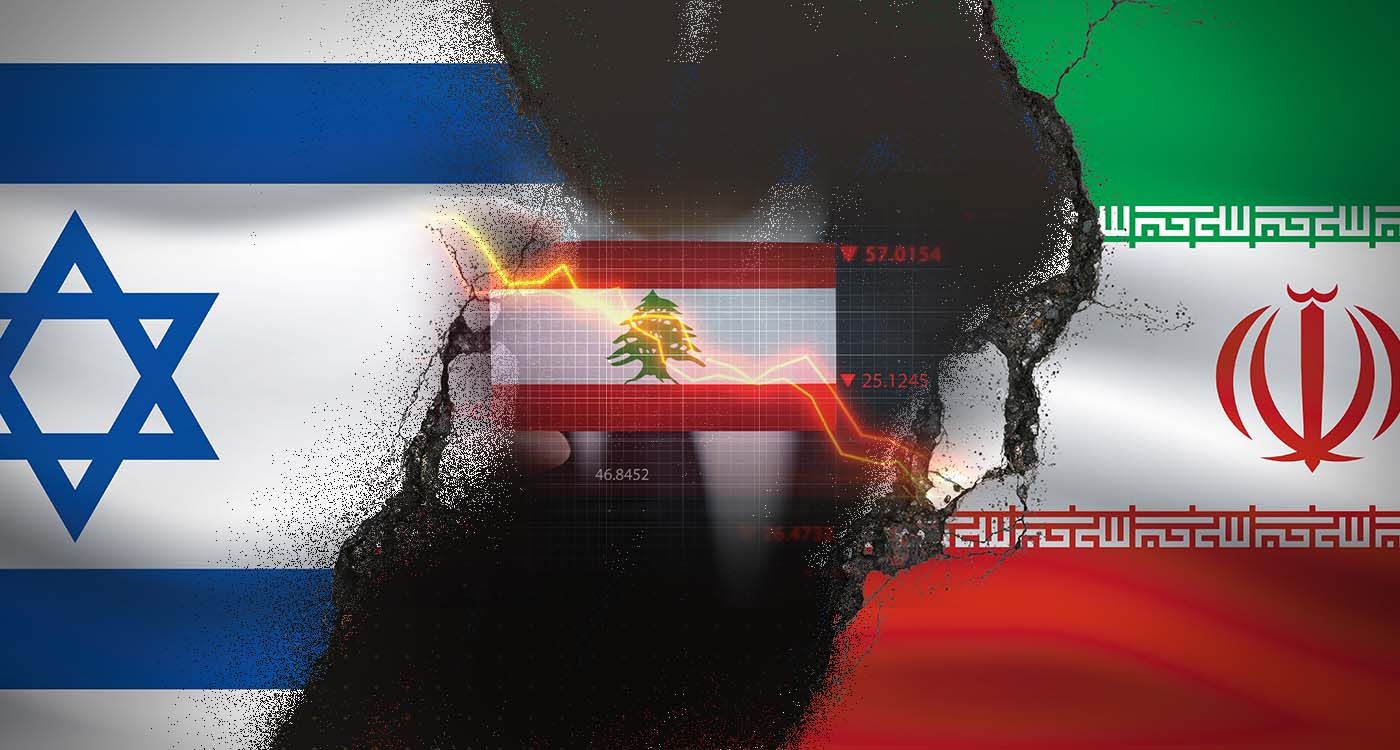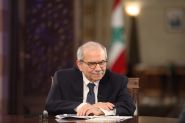
With Israel and Iran now in open confrontation, shockwaves ripple across the entire Middle East. Caught in the crossfire, Lebanon’s already battered economy slips further into crisis. Devastated by an unprecedented financial crisis since 2019, the country now carries the heavy burden of a conflict it has not joined—yet whose proximity and geopolitical fallout place it directly in the economic line of fire.
With regional tensions mounting, Lebanon’s economy teeters between stagnation and potential collapse.
Nassib Ghobril, Chief Economist at Byblos Bank, tells This is Beirut that the conflict’s primary consequence is widespread instability, discouraging investment, slowing trade, and deterring tourism. The looming threat of war—particularly along the southern front between Hezbollah and Israel—has driven businesses and consumers into a cautious, wait-and-see mode. Already battered by the Lebanese pound’s collapse, banking restrictions, and sharply reduced purchasing power, the private sector is now grinding to a halt. Projects have stalled, commitments scaled back, and import inventories trimmed in anticipation of supply chain disruptions or sudden price hikes.
Tourism, among the hardest-hit sectors, is rapidly collapsing. What had promised to be a strong summer season is unraveling as airlines cut or suspend flights, and cancellations surge in hotels and guesthouses. Industry insiders estimate visitor numbers may fall by over 50%, with financial losses between $300 and $500 million.
Even if the conflict is brief, the damage to tourism is already profound. “Many expatriates and tourists have canceled their trips,” Ghobril says. The fallout will ripple through the broader service economy, impacting hospitality, restaurants, festivals, and events.
Three Possible Outcomes: From Bad to Catastrophic
Ghobril outlines three possible scenarios as regional tensions escalate.
The first, with a 35% likelihood, sees a short conflict causing limited but noticeable damage to the tourist season and slowing economic growth to about 3%.
The second, the most probable at 45%, envisions a prolonged conflict characterized by broad uncertainty, rising inflation, and delayed reforms, reducing growth below 2%.
The third, at 20%, involves Lebanon’s direct engagement, resulting in a severe economic contraction, the collapse of the summer tourism season, and a total halt to reforms.
The sharp rise in global oil prices, driven by regional instability, hits Lebanon particularly hard, as the country is entirely reliant on imported fuel. This surge drives up production, transportation, and consumer costs. Maritime logistics pose additional risks. Mohammad Abou Haidar, General Director of the Ministry of Economy, warns that if the conflict disrupts the Bab el-Mandeb Strait, shipments to Lebanon would need to be rerouted via the Strait of Gibraltar—adding around 21 days to transit times. This would elevate freight, insurance, and fuel costs, directly raising consumer prices.
Despite these challenges, Abou Haidar offers cautious reassurance: “As long as maritime routes remain open, Lebanon faces no immediate threat to food security.” Current stockpiles are sufficient for three months, though rising oil prices will inevitably impact domestic markets. Lebanon’s import-dependent economy remains highly vulnerable to supply chain disruptions. Temporary closures or heightened tensions in critical maritime corridors—especially the Red Sea—could delay deliveries and increase the cost of essential goods.
Ghobril cautions that a prolonged conflict would prompt households to cut non-essential spending and further push back reform initiatives. Economic growth would slip below 2%, with budget deficits reappearing. Even if the exchange rate remains steady, Central Bank (BDL) reserves would stagnate under the first scenario or decline in the second and third, despite possible gains in gold prices. The conflict also postpones crucial reforms in the public sector, economic restructuring, and border demarcation—all vital for unlocking international aid.
Lebanon had hoped to capitalize on the momentum from recent elections and government formation to push reforms forward. Yet now, preventing an escalation of the conflict is crucial to avoid international isolation and the loss of vital external support. The Israel-Iran conflict lays bare Lebanon’s profound structural vulnerabilities, and without rapid de-escalation, the country risks slipping deeper into a chronic economic crisis, worsened by political paralysis and institutional collapse.




Comments